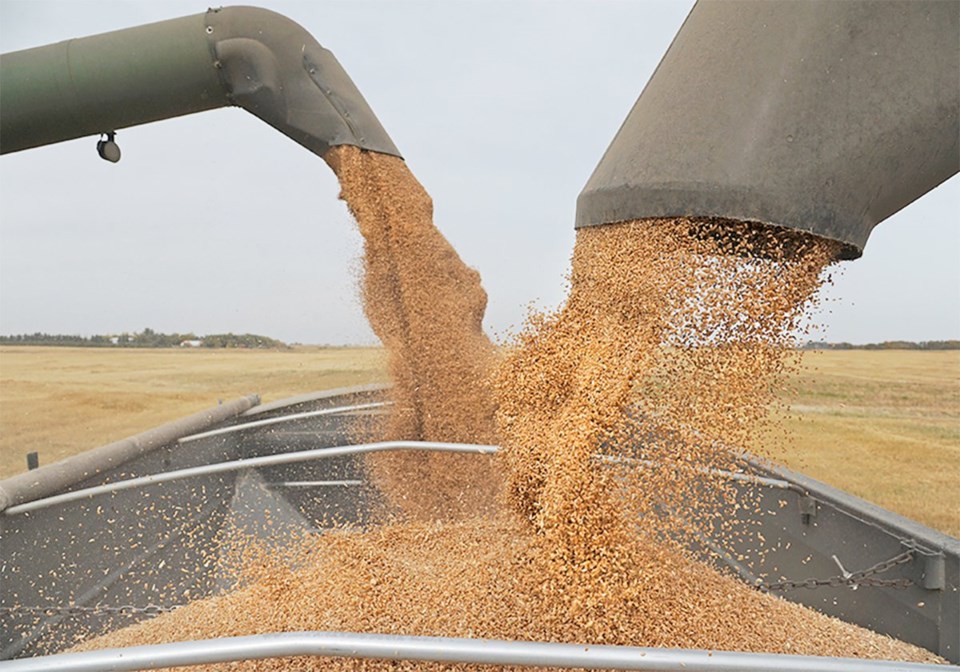REGINA — Saskatchewan Association of Rural Municipalities president Bill Huber says rural voices must be heard in this time of uncertainty and as Canada looks ahead.
He told delegates to the recent SARM annual convention that the impending federal election is an opportunity to help shape Canada’s future. The threat of tariffs has seen Canadians pull together, and that should continue.
“The stakes are high and it’s imperative that provincial and federal leaders not only demonstrate their understanding of rural needs in Western Canada but also commit to creating policies that will ensure that our real priorities aren’t just heard but are acted upon,” he said in his opening address.
Huber said those who seek to lead the country must have an effective vision that includes everyone, especially farmers.
“Parliament Hill must be reminded that rural Saskatchewan feeds not only the country but the world, and now more than ever that demands the respect and support of federal candidates and policy makers,” he said.
Farmers need help from both provincial and federal governments to deal with challenges such as labour shortages, drought and tariffs, he said.
“SARM is urging all levels of government to protect agricultural productivity and economic viability by expanding eligibility for the Canada-Saskatchewan Job Grant to allow farmers and RMs to qualify as eligible employers,” Huber said.
They should offer employment training opportunities at times that don’t interfere with seeding or harvest, find and increase international markets and enhance interprovincial trade, he said.
Huber called for a water management strategy that balances productivity with environmental protections, enhancements to AgriStability and AgriRecovery, simplifying access to federal funds for drought and mitigation projects, and extending the federal drought tax deferral program.
He said severe weather recovery support and policies should be specific to regions.
Huber said RMs need more infrastructure investment to get agricultural and resource products to market.
About 34 per cent of RM bridges are 60 years old and older and beyond their service lives.
“Another 29 percent of all RM bridges are 50 to 59 years old and approximately 18 per cent are 40 to 49 years old,” he said.
“Tally it all up and that means 81 per cent of our rural bridge inventory requires replacement in the next 10 years. To put that into perspective, consider that the cost of replacing any bridge that meets funding criteria through current programs will likely be over $1 million.”
Because funding is based on per capita models, smaller communities have no chance of getting any of the money. Programs should change to be more co-operative and provide for stable, long-term infrastructure funding, he said.
Huber, now officially SARM president, also said the organization will continue to advocate tirelessly for better health-care services in rural areas.
He had been acting as president since last summer when Ray Orb retired and was unopposed in his bid to keep that job.
Darren Steinley, who had been the Division 3 director, is the new vice-president. He farms near Rush Lake. An election for division director to replace him will be held later.
He also highlighted the need for better health care, as well as dealing with rural crime.
The board includes Division 1 director Bob Moulding, Cody Jordison in Division 2, Myron Kopec in Division 4, Division 5 director Blair Cummins and Randy Aumack in Division 6.
Contact [email protected]
About the author
Related Coverage
Carney says supply management “off the table” in negotiations
Spring elk hunt in Saskatchewan raises concerns
Trade, competitiveness, investment among organic sector’s election priorities
Western party not on April ballot
Carney says China does not share Canada’s values on trade
What do you want to know before voting in Canada’s federal election?




